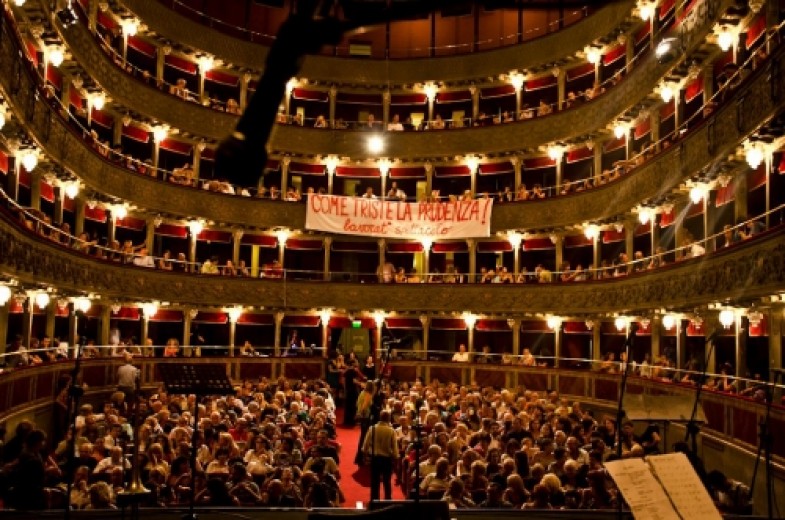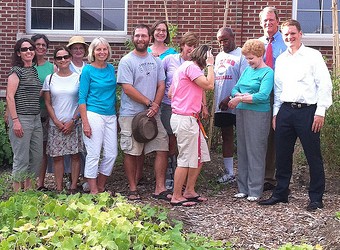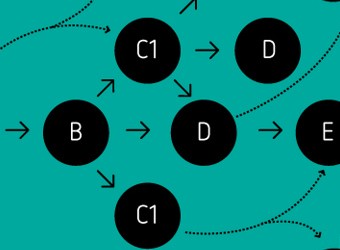Throughout Europe, we are witnessing massive transfers of resources from the public to the private sphere. The political responses to the crises have been defined by austerity measures and by cuts to social spending, driving Europe further into recession.
From Greece to Spain, from London to Rome, European people are increasingly aware of the need for a different model of globalization. From those resisting the privatization of resources (for example, in Italy with last summer’s success in defeating a water privatization referendum, and currently in Romania) to the recent occupations of public spaces against neoliberal policies (for example, in the UK and Spain), this is the moment to construct and alternative Europe which is not a product of neoliberal politics, but the political expression of European citizens.
Within this context, more than forty organisations, networks and social movements from eight European countries will meet in the 600-seat Valle Theatre in Rome to organise a common front in constructing an alternative European model. This three-day forum will focus on the construction of common transnational campaigns on the themes of the commons and guaranteed minimum income as well as the battle against unemployment and economic insecurity. The event will be a true opportunity to build European networks and campaigns that will take concrete forms in follow-up meetings in Spain, the UK, Romania, Bulgaria and France in the following months to continue the work begun in Rome. The emphasis on concrete campaigns will be the starting point to engage in a reflection on the revision of the EU Treaties, to propose an alternative vision of Europe.
A European Citizens’ Initiative for a European Charter of the Commons was initiated by the Local Authority for Common Goods within the Municipality of Naples. Proposals for an Initiative on minimum income have been put forward by the Basic Income Network, among others, following proposals advanced by the European Parliament in October 2010.
The Rome forum is organised by European Alternatives, the International University College Turin, Teatro Valle, Centro Studi per l’Alternativa Comune, Municipality of Naples, ARCI, Il Manifesto, Basic Income Network, Tilt, Rete della Conoscenza, Cilap-eapn, Altramente, Osservatorio Europa, MFE.
FORUM PROGRAM
Friday Feb. 10th – Opening assembly: An Alternative Europe is Possible
17:00* International interventions to launch a new Europe in response to austerity, based on common goods, income and participation*
Costas Douzinas (Brikbeck College), Maurizio Landini (Fiom), Ida Dominjanni (Il Manifesto), Ugo Mattei (IUC), Ovidiu Tichindeleanu (CriticAttac, Romania), Marcus Graetsch and Martin Schmalzbauer (Fels-Berlin, Occupy-Frankfurt), Lorenzo Marsili (European Alternatives), Jerome Roos (Roar), Claudia Bernardi (UniCommon), Franco Russo (Osservatorio Europa), Antonio Tricarico, Maria Pia Pizzolante (Tilt), Claudio Riccio (Rete della conoscenza).
Saturday Feb. 11 – Towards a European Charter of the Commons
10:00 – 13.30 Commons, Direct Democracy & Fundamental Rights in Europe
Reclaiming the commons requires not only the reshaping of the democratic process as it stands today by offering an alternative to the model that has prevailed under state and market models, but also the protection of access to such resources as fundamental rights.
First interventions by:
Ugo Mattei (International University College Turin)
Costas Douzinas (Birkbeck College, GB / Greece)
Alberto Lucarelli (Assessore, Municipality of Naples)
How to define the commons in different European contexts and build a transnational campaign. Intervention and participative roundtable with:
Gilda Farrell (Council of Europe), Silke Helfreich (Commons Strategy, Germany), Paolo Beni (ARCI, Italia), Aitor Tinoco i Girona (Democracia Real Ya / Universidad Nomada, Spain), Tommaso Fattori (Forum acqua), Krzysztof Conpr (Fise, Poland), Renato Sabbatini (Rosa Luxembourg Foundation, Germany/Belgium). Ovidiu Tichindeleanu (CriticAttac, Romania). Ana Méndez (Observatorio Metropolitano, Spain), Giuseppe Caccia (City of Venice), Pier Virgilio Dastoli (Permanent forum of civil society), Nicholas Milanese (European Alternatives), Saki Bailey (International University College Turin), Giuseppe De Marzo (Asud), Harry Halpin (University of Edinburgh),
Open debate to follow
15.00 – 17.30 International Round Table & Working Groups
Different organisations will confront each other on the themes of the morning and work towards the elaboration of a common campaign and Citizen’s Initiative for a European Charter of the Commons.
Translating the commons in different European contexts
Creating a transnational network around the European Charter of the Commons
Legal & technical requirements of the ECI campaign
Roadmap & timeline: future steps towards the campaign
Followed by artistic performances organised by Teatro Valle
Sunday Feb. 12: Towards a European Minimum Income
10:30 Minimum Income in Europe
On Sunday, a campaign on Minimum Income at a European level will be discussed, as a solution to precarious working and living conditions.
First interventions by:
Luca Santini, (Basic Income Network)
Francesco Raparelli (Centro Studi per l’Alternativa Comune)
International participative roundtable with experts responding to open questons on different aspects of minimum income, its relation to work, precarity, financial sustainability, knowledge, gender, and legality. With:
Massimiliano Smeriglio (Assessore, Province of Roma), Riccarto Petrella (Italy / Belgium), Adrian Dohartu (GAS, Romania), Mariya Ivancheva (Red House, Bulgaria), Florence Morillon (Generation Precaire, France), Adrià Rodríguez de Alòs-Moner (Universidad Nomada, Spain), Klaus Sambor (Basic Income Network Austria), Adeile Oddo (Solidar), Alberto Cottica (Council of Europe), Edgar Manjarin Castellarnau and Jose Luis Rey Perez (Red Renta Basica, Spain), Roberto Musacchio (AltraMente), Giuseppe Bronzini (BIN), Ilias Livanos (University of Warwick), Marco Furfaro (Tilt), Nicoletta Teodosi (Cilap-Eapn)
Open debate to follow.
14.30 – 16:00 International round table on income: how to translate demands for a minimum income in different European contexts and roadmap towards the construction of a European campaign. Including:
Translating minimum income in different European contexts
Creating a transnational network around the demands for minimum income
Legal & technical requirements of the ECI campaign
Roadmap & Timeline: Future steps towards the campaign
16.30 – 16.30: Conclusion: Launch of campaigns and shared roadmap for the next months.








